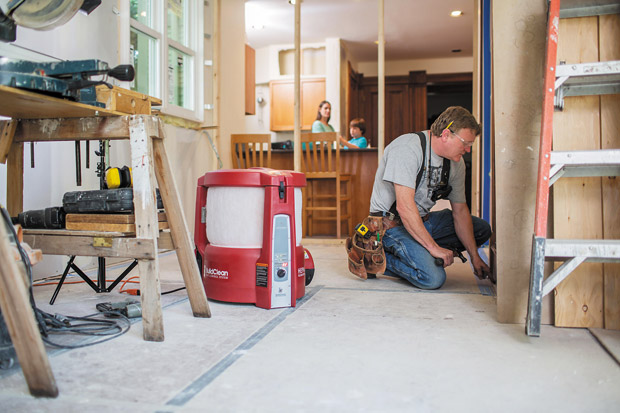Things to consider when looking for a new contractor
 Are you one of the more than 3 million people planning to renovate your kitchen or bathroom this year? Or perhaps you’re adding on a room or finishing your basement. If you’re going to hire a contractor for any home remodeling project, make sure you know the difference between a great contractor and an “OK” one.
Are you one of the more than 3 million people planning to renovate your kitchen or bathroom this year? Or perhaps you’re adding on a room or finishing your basement. If you’re going to hire a contractor for any home remodeling project, make sure you know the difference between a great contractor and an “OK” one.
A quick Google search on “remodeling disasters” or “renovation mistakes” returns an endless number of nightmare remodeling projects and scams, where the homeowner is left dealing with unfinished projects or unsafe conditions, and ultimately spends more money rectifying the issue. Plus, living in unsafe conditions also means someone may have to use a Pasadena injury attorney to hold a rouge builder responsible if they ever incur an injury from their work, making any renovation more expensive and more stressful.
When making such a significant investment, you want to make sure you’re getting a reputable and dependable professional so your project doesn’t become another horror story.
So, now that you’ve narrowed down your list of potential contractors, how can you weed out the amateurs from the tried-and-true professionals?
Look for these qualities:
1. Focus.
A professional: Puts clients first and will work with you to make sure your goals are feasible and that the project can get done on time and on budget. Treats customers, their families and their homes with respect.
An amateur: Focuses on finishing the job as quickly as possible, with little regard for your family’s personal needs and schedule.
2. Livability.
A professional: Well-equipped to deal with the No. 1 threat to livable remodeling – dirt and dust. Protects you and your family from annoying and potentially dangerous air particles.
An amateur: Doesn’t have a proactive strategy to manage indoor air quality and job-site dust. “Brushes it under the rug” without concern for your indoor air quality, your belongings and the short-term and long-term health of you and your family.
3. Ethical.
A professional: Pro-
actively addresses challenges head-on, immediately notifying you of an unexpected issue.
An amateur: Ignores problems uncovered during the project in order to keep it moving. Leaves behind things like hidden mold, leaky pipes or structural issues, putting the health and safety of your family at risk.
4. Risk.
A professional: has a license, certifications and insurance. Obtains all necessary permits, protecting you against unsafe work and legal issues. Guarantees their work.
An amateur: Unaware of, or doesn’t care about, building codes, required permits and health and safety regulations. Leaves you liable for any improper work, mistakes and a potentially dangerous situation.
5. Value.
A professional: Communicates with you to establish an estimate and negotiate a fair contract and payment schedule.
An amateur: Under-bids a project by thousands of dollars and is likely to cut corners to meet the budget or overwhelm you with costly change orders.
When beginning your projects, remember that professional contractor will put your interests first. For more information, visit livableremodeling.com.
This article is courtesy of Brandpoint.